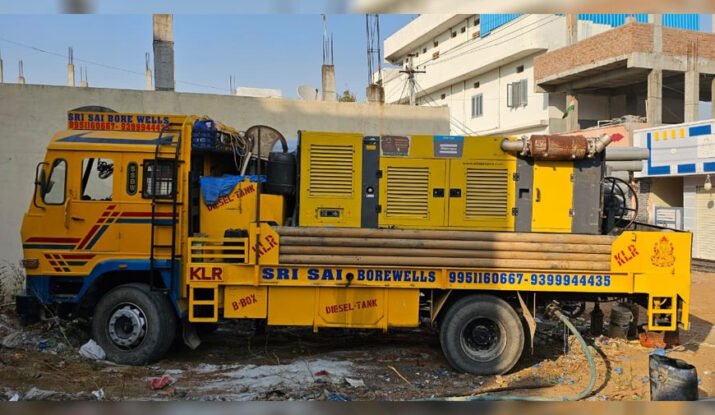When planning a borewell for your home or business, one of the most crucial factors to consider is depth. Borewell depth isn’t a one-size-fits-all number—it varies based on location, purpose, soil composition, and groundwater availability. Choosing the correct depth is essential to ensure a long-term, reliable water source while avoiding unnecessary drilling costs.
the ideal borewell depths for both residential and commercial needs and what factors influence this decision.
Ideal Borewell Depth for Residential Use
For a typical residential property, the primary goal is to secure water for household needs like cooking, cleaning, bathing, gardening, and basic utilities.
Average Depth:
- Residential borewells usually range between 100 to 250 feet (30–75 meters) in most urban and suburban areas.
- In water-scarce regions, the depth might go up to 400 feet or more.
What Determines the Depth?
- Local geology: Hard rock areas require deeper borewells as water is found in fractures.
- Water table levels: If the water table is high, you can get water at shallower depths.
- Seasonal variation: Drilling a little deeper than the current water level ensures year-round access.
- Ideal Borewell Depth for Commercial or Industrial Use
Commercial borewells support larger-scale water usage—for factories, apartment complexes, agriculture, construction, etc.
Average Depth:- Commercial borewells typically go 500 to 1500 feet deep depending on water demand and geological conditions.
In arid or rocky regions, borewells can reach up to 2000 feet.
Key Considerations:
- Water demand: The higher the water requirement, the deeper the borewell needs to be.
- Regulatory approvals: Some regions require permission for borewells exceeding certain depths—check your local groundwater board regulations.
Pump capacity: A deeper borewell may require a submersible pump with higher HP (horsepower).
Important Factors to Remember
- Quality of Water – Deeper doesn’t always mean cleaner. In some areas, shallow borewells offer better water quality than very deep ones.
- Cost Factor – Deeper borewells are more expensive due to longer drilling time, casing, and stronger pumps.
- Maintenance – Regular servicing of pumps and borewell cleaning is necessary for deep installations.
Legal Compliance – Always ensure you follow local laws regarding borewell drilling to avoid penalties or borewell sealing orders.



Comments (2)
Understanding the 6-Inch Borewell Cost: What You Should Know Before You Drill
[…] Drilling Depth The cost is usually calculated per foot or meter. The deeper the drilling, the higher the total cost. Water table levels vary by location, so site inspection is crucial. […]
What No One Tells You About Borewell Drilling
[…] Drilling Depth The cost is usually calculated per foot or meter. The deeper the drilling, the higher the total cost. Water table levels vary by location, so site inspection is crucial. […]